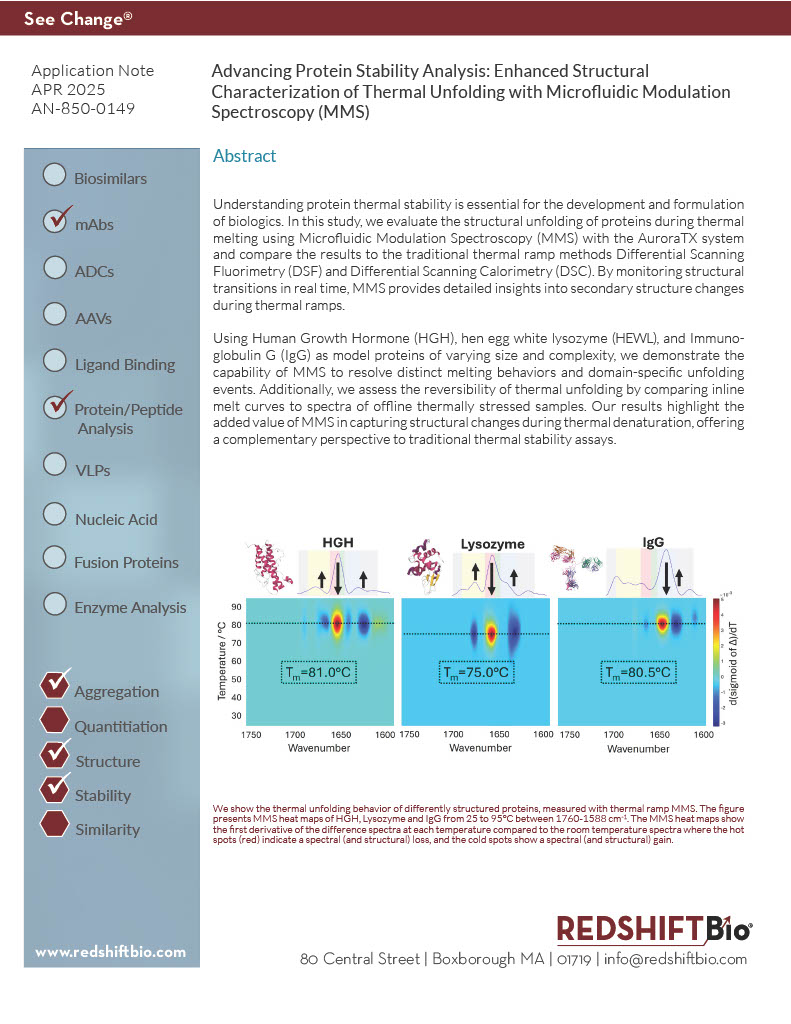
Advancing Protein Stability Analysis: Enhanced Structural Characterization of Thermal Unfolding with Microfluidic Modulation Spectroscopy (MMS)
Abstract
Understanding protein thermal stability is essential for the development and formulation of biologics. In this study, we evaluate the structural unfolding of proteins during thermal melting using Microfluidic Modulation Spectroscopy (MMS) with the AuroraTX system and compare the results to the traditional thermal ramp methods Differential Scanning Fluorimetry (DSF) and Differential Scanning Calorimetry (DSC). By monitoring structural transitions in real time, MMS provides detailed insights into secondary structure changes during thermal ramps.
Using Human Growth Hormone (HGH), hen egg white lysozyme (HEWL), and Immuno-globulin G (IgG) as model proteins of varying size and complexity, we demonstrate the capability of MMS to resolve distinct melting behaviors and domain-specific unfolding events. Additionally, we assess the reversibility of thermal unfolding by comparing inline melt curves to spectra of offline thermally stressed samples. Our results highlight the added value of MMS in capturing structural changes during thermal denaturation, offering a complementary perspective to traditional thermal stability assays.

App Note Form
Please complete the form to download the full app note.

